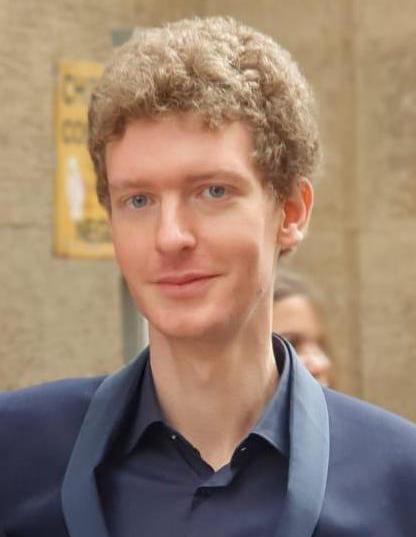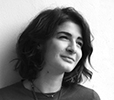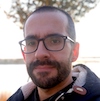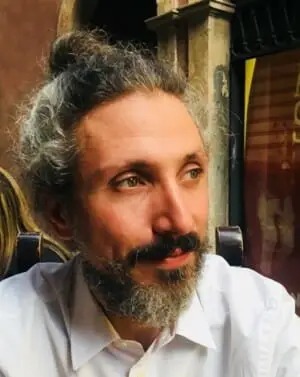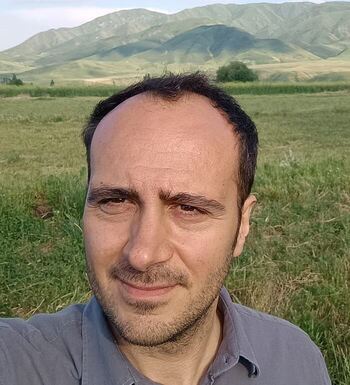Studying at the University of Verona
Here you can find information on the organisational aspects of the Programme, lecture timetables, learning activities and useful contact details for your time at the University, from enrolment to graduation.
Academic calendar
The academic calendar shows the deadlines and scheduled events that are relevant to students, teaching and technical-administrative staff of the University. Public holidays and University closures are also indicated. The academic year normally begins on 1 October each year and ends on 30 September of the following year.
Course calendar
The Academic Calendar sets out the degree programme lecture and exam timetables, as well as the relevant university closure dates..
| Period | From | To |
|---|---|---|
| Sem. 1A | Sep 26, 2022 | Nov 5, 2022 |
| Sem. 1B | Nov 14, 2022 | Dec 23, 2022 |
| Sem. 2A | Feb 13, 2023 | Mar 30, 2023 |
| Sem. 2B | Apr 11, 2023 | May 27, 2023 |
| Session | From | To |
|---|---|---|
| Sessione Invernale | Jan 9, 2023 | Feb 11, 2023 |
| Sessione Estiva | Jun 5, 2023 | Jul 22, 2023 |
| Sessione Autunnale | Aug 28, 2023 | Nov 23, 2023 |
| Sessione straordinaria invernale | Jan 8, 2024 | Feb 17, 2024 |
| Session | From | To |
|---|---|---|
| Sessione Estiva | Jul 10, 2023 | Jul 15, 2023 |
| Sessione Autunnale | Nov 6, 2023 | Nov 11, 2023 |
| Sessione invernale | Apr 2, 2024 | Apr 8, 2024 |
| Period | From | To |
|---|---|---|
| Festa di Ognissanti | Nov 1, 2022 | Nov 1, 2022 |
| Festività Della Immacolata Concezione | Dec 8, 2022 | Dec 8, 2022 |
| Vacanze natalizie | Dec 24, 2022 | Jan 8, 2023 |
| Vacanze di Pasqua | Apr 7, 2023 | Apr 10, 2023 |
| Festa della Liberazione | Apr 25, 2023 | Apr 25, 2023 |
| Festa del lavoro | May 1, 2023 | May 1, 2023 |
| Festa del Santo Patrono | May 21, 2023 | May 21, 2023 |
| Festa della Repubblica | Jun 2, 2023 | Jun 2, 2023 |
| Chiusura estiva | Aug 14, 2023 | Aug 19, 2023 |
Exam calendar
Exam dates and rounds are managed by the relevant Humanistic Studies Teaching and Student Services Unit.
To view all the exam sessions available, please use the Exam dashboard on ESSE3.
If you forgot your login details or have problems logging in, please contact the relevant IT HelpDesk, or check the login details recovery web page.
Should you have any doubts or questions, please check the Enrollment FAQs
Academic staff
 francesco.bianchi@univr.it
francesco.bianchi@univr.it
 evita.calabrese@univr.it
evita.calabrese@univr.it
 andrea.cavalletti@univr.it
andrea.cavalletti@univr.it
 elena.desilvestri@univr.it
elena.desilvestri@univr.it

Mastrocinque Attilio
 attilio.mastrocinque@univr.it
attilio.mastrocinque@univr.it
 +39 045802 8386
+39 045802 8386
 stefania.pontrandolfo@univr.it
stefania.pontrandolfo@univr.it
 pieralberto.porcedducilione@univr.it; pierre_pordd@yahoo.it
pieralberto.porcedducilione@univr.it; pierre_pordd@yahoo.it
 045 8028732
045 8028732
 nicola.turrini@univr.it
nicola.turrini@univr.it
 mariarenata.zanchin@univr.it
mariarenata.zanchin@univr.it
Study Plan
The Study Plan includes all modules, teaching and learning activities that each student will need to undertake during their time at the University.
Please select your Study Plan based on your enrollment year.
1° Year
| Modules | Credits | TAF | SSD |
|---|
Further activities2° Year activated in the A.Y. 2023/2024
| Modules | Credits | TAF | SSD |
|---|
2 modules between the following3 modules among the following2 modules between the following3° Year It will be activated in the A.Y. 2024/2025
| Modules | Credits | TAF | SSD |
|---|
3 modules among the following| Modules | Credits | TAF | SSD |
|---|
Further activities| Modules | Credits | TAF | SSD |
|---|
2 modules between the following3 modules among the following2 modules between the following| Modules | Credits | TAF | SSD |
|---|
3 modules among the following| Modules | Credits | TAF | SSD |
|---|
2 modules among the following3 modules among the followingLegend | Type of training activity (TTA)
TAF (Type of Educational Activity) All courses and activities are classified into different types of educational activities, indicated by a letter.
Laboratory of Philosophy of Arts and Music (2022/2023)
Teaching code
4S007329
Academic staff
Coordinator
Credits
3
Language
Italian
Scientific Disciplinary Sector (SSD)
M-FIL/04 - AESTHETICS
Period
Sem. 2B dal Apr 11, 2023 al May 27, 2023.
Learning objectives
Workshop on Philosophy of Art and Music
The workshop aims to give students who are actively involved in it a knowledge of philosophical thought that from the German eighteenth century onwards has been confronted in general with artistic practice and, in particular, with musical composition. In this sense, students enhance their knowledge of the main lines of Western aesthetics, by acquiring specific knowledge of certain philosophical theories and artistic, aesthetic or poetic practices. Students will also enhance their comprehension of the status of art, and the power of aesthetical experience to understand the world and transform it, thus empowering themselves with more autonomous judgement skills on specific cultural issues, such as artistic practice and, in particular, musical composition.
Prerequisites and basic notions
No particular prior knowledge is requested.
Program
RICHARD WAGNER. THE SOUND OF THOUGHT In spite of more than a century that separates us from his life and his work, the figure of Wagner continues to stimulate philosophical thought. His greatness lies not only in the sublime quality of his music and his musical dramaturgy, but also in the density of thought that innervates both his works and his theoretical writings. The impact of Wagner's work and thought on European culture, between the second half of the nineteenth century and the entire twentieth century, was incalculable. Even today, in the 21st century, the figure of him fascinates scholars, musicians, musicologists, writers, philosophers. The workshop will examine the rich philosophical debate triggered by the figure of Wagner, his relations with Nietzsche, the impact on French culture (think of Baudelaire and Symbolism), from the readings of Thomas Mann and Adorno, up to the most recent positions and philosophical aspects of the current debate. Understanding Wagner means understanding some fundamental junctions of German and European culture of the last two centuries. It is an invitation to analyse the foundations of the connection between thought and music, philosophical reflection and compositional practice, without which no philosophy of music is possible.
Didactic methods
Since this is a Seminary, the didactic methods adopted are addressing exclusively attend-ing students. They consist of one frontal introductory lesson and one or two lessons held by professionals of the musical sector (singers, conductors of choirs etc.). During the other lessons the students will hold singular presentations of the chosen writings and discuss them in class. In this way fundamental concepts and structures of thinking and reflection and their respective application tools to implement theoretical notions in the direction of autonomous critical judgment will be elaborated by the students themselves under the guidance of the teacher.
Throughout the academic year, the teacher also holds a regular individual Reception at the times indicated on his page (without having to set a specific appointment). However, it is recommended that you consult the messages to be informed of any changes. During the first lesson, attending students will receive the full lesson schedule with the dates and top-ics discussed. Information on timetables and classrooms is also provided.
The content of books and lessons is adhering to the program.
Learning assessment procedures
In order to obtain the credits the students have to relate on a chosen text pertinent to the thematic of the Seminary and discuss it with the others. Furthermore, the students should participate at the lessons.
Exam language
Italiano
Type D and Type F activities
Una quota dei crediti corrispondenti all’attività formativa dell’intero triennio, determinata dal presente Regolamento in 12 CFU, è riservata alla scelta autonoma da parte della/o studente. Questa scelta può essere orientata sia verso corsi/esami non seguiti/sostenuti in precedenza, sia verso iterazioni di corsi/esami, sia ancora verso altre attività (tutorati, ulteriori competenze linguistiche, partecipazione a convegni o seminari), purché tutte preventivamente approvate dal Collegio Didattico e/o dalla Commissione Didattica del Dipartimento. Tra i 12 crediti dovrà comunque essere presente almeno un esame con voto. In conformità al dettato del D.M. 270/04 e alla luce delle raccomandazioni espresse dal D.M. 26 luglio 2007, capo 3 lettera n), la scelta, che non può essere predeterminata (fatto salvo quanto indicato per le iterazioni), deve comunque essere ispirata a coerenza col piano formativo della/del singola/o studente.
In caso di attività formative non rientranti nelle categorie previste, si dovrà fare richiesta di valutazione al Collegio Didattico di Filosofia fornendo adeguate motivazioni.
Altre informazioni sono reperibili nella Guida per i crediti liberi che è possibile trovare quì
COMPETENZE TRASVERSALI
Scopri i percorsi formativi promossi dal Teaching and learning centre dell'Ateneo, destinati agli studenti iscritti ai corsi di laurea, volti alla promozione delle competenze trasversali:
https://talc.univr.it/it/competenze-trasversali
| years | Modules | TAF | Teacher |
|---|---|---|---|
| 1° 2° 3° | Conflict. Recognize, prevent, manage | D |
Paola Dal Toso
(Coordinator)
|
| 1° 2° 3° | EXPOSED BODIES - Diotima seminar | D |
Rosanna Cima
(Coordinator)
|
| 1° 2° 3° | The Talks of EThoS Research Centre | D |
Carlo Chiurco
(Coordinator)
|
| 1° 2° 3° | III Reading seminar of classical texts | D |
Alessandro Stavru
(Coordinator)
|
| 1° 2° 3° | X National Conference of the Italian Society of Applied Anthropology (SIAA) “Rethinking Sustainability through Applied Anthropology” | D |
Stefania Pontrandolfo
(Coordinator)
|
| years | Modules | TAF | Teacher |
|---|---|---|---|
| 1° 2° 3° | Conflict. Recognize, prevent, manage | D |
Paola Dal Toso
(Coordinator)
|
| 1° 2° 3° | Business English for everybody | D |
Manuel Boschiero
(Coordinator)
|
| 1° 2° 3° | Russian for everybody | D |
Maria Gabriella Landuzzi
(Coordinator)
|
| 1° 2° 3° | The Talks of EThoS Research Centre | D |
Carlo Chiurco
(Coordinator)
|
| 1° 2° 3° | III Reading seminar of classical texts | D |
Alessandro Stavru
(Coordinator)
|
| 1° 2° 3° | La materia oscura dello sguardo | D |
Gianluca Solla
(Coordinator)
|
| 1° 2° 3° | X National Conference of the Italian Society of Applied Anthropology (SIAA) “Rethinking Sustainability through Applied Anthropology” | D |
Stefania Pontrandolfo
(Coordinator)
|
| years | Modules | TAF | Teacher |
|---|---|---|---|
| 1° 2° 3° | The Talks of EThoS Research Centre | D |
Carlo Chiurco
(Coordinator)
|
| 1° 2° 3° | III Reading seminar of classical texts | D |
Alessandro Stavru
(Coordinator)
|
| 1° 2° 3° | Gnoseology and Metaphysics Workshop | D |
Davide Poggi
(Coordinator)
|
| 1° 2° 3° | OMeGA - Horizons, Models and Assisted Parenting | D |
Alessandra Cordiano
(Coordinator)
|
| 1° 2° 3° | Tai-Ti aiuto io | D |
Alessandra Cordiano
(Coordinator)
|
| 1° 2° 3° | Making the invisible visible. Study day | D |
Giorgio Gosetti
(Coordinator)
|
| years | Modules | TAF | Teacher |
|---|---|---|---|
| 1° 2° 3° | The Talks of EThoS Research Centre | D |
Carlo Chiurco
(Coordinator)
|
| 1° 2° 3° | III Reading seminar of classical texts | D |
Alessandro Stavru
(Coordinator)
|
| 1° 2° 3° | Gnoseology and Metaphysics Workshop | D |
Davide Poggi
(Coordinator)
|
| 1° 2° 3° | OMeGA - Horizons, Models and Assisted Parenting | D |
Alessandra Cordiano
(Coordinator)
|
| 1° 2° 3° | Tai-Ti aiuto io | D |
Alessandra Cordiano
(Coordinator)
|
| 1° 2° 3° | University and DSA: Methods and strategies for studying and studying at university | D |
Ivan Traina
(Coordinator)
|
Career prospects
Module/Programme news
News for students
There you will find information, resources and services useful during your time at the University (Student’s exam record, your study plan on ESSE3, Distance Learning courses, university email account, office forms, administrative procedures, etc.). You can log into MyUnivr with your GIA login details: only in this way will you be able to receive notification of all the notices from your teachers and your secretariat via email and also via the Univr app.
Student mentoring
Linguistic training CLA
Gestione carriere
Practical information for students
Documents
| Title | Info File |
|---|---|
|
|
pdf, it, 325 KB, 16/07/24 |
|
|
pdf, it, 212 KB, 02/05/23 |
|
|
pdf, it, 131 KB, 02/05/23 |
Graduation
Documents
| Title | Info File |
|---|---|
|
|
pdf, it, 109 KB, 12/07/24 |
|
|
pdf, it, 112 KB, 14/05/24 |












